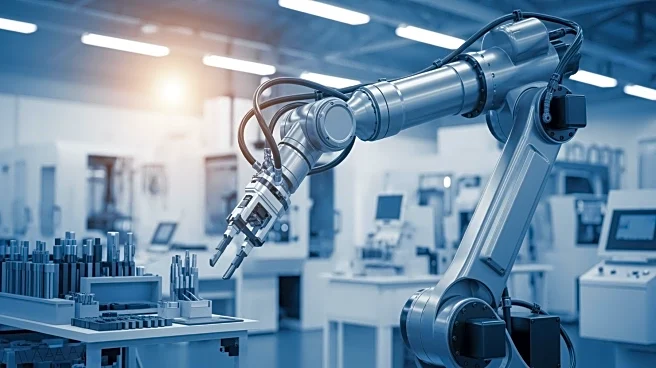What's Happening?
Several manufacturing stocks have been highlighted as worth watching due to their recent performance and potential for growth. Companies such as Taiwan Semiconductor Manufacturing, Applied Materials, Stellantis,
Johnson Controls International, and Chart Industries are noted for their significant trading volumes. These stocks represent a diverse range of industries, including semiconductor manufacturing, automotive production, and building systems engineering. Investors view manufacturing stocks as cyclical assets, with their performance closely tied to economic growth, commodity prices, and labor costs. The current focus on these stocks reflects broader market trends and investor interest in sectors poised for expansion.
Why It's Important?
The attention on manufacturing stocks signals a potential shift in investor sentiment towards industries that are integral to economic infrastructure and technological advancement. As these companies navigate supply chain challenges and capital expenditure cycles, their performance could influence broader market dynamics. The emphasis on manufacturing stocks highlights the importance of monitoring economic indicators such as order backlogs and capacity utilization, which are critical for assessing industry health and future growth prospects.
What's Next?
Investors and analysts will continue to monitor the performance of these manufacturing stocks, particularly in light of ongoing economic uncertainties and geopolitical factors. Companies may need to adapt to changing market conditions, including fluctuations in commodity prices and labor availability. Strategic investments in technology and innovation will be crucial for maintaining competitiveness and driving future growth. The evolving landscape of manufacturing could lead to new opportunities and challenges for stakeholders across the industry.
Beyond the Headlines
The manufacturing sector's reliance on global supply chains and international markets presents potential risks and opportunities. Companies may face ethical considerations related to labor practices and environmental impact, prompting increased scrutiny from regulators and consumers. Long-term shifts in manufacturing processes, driven by technological advancements, could redefine industry standards and practices.









